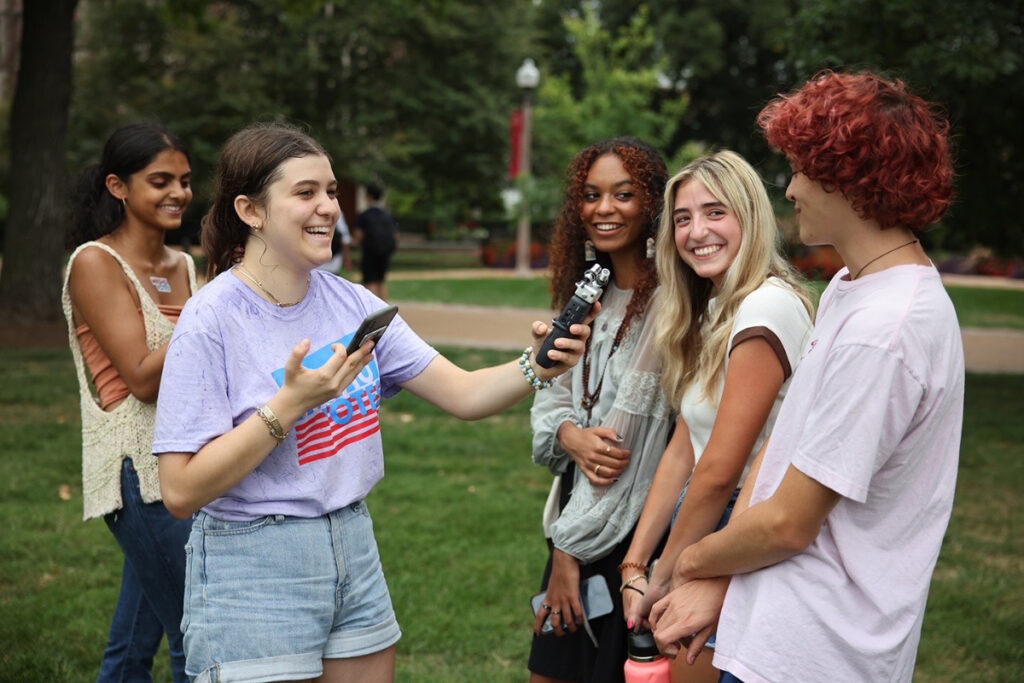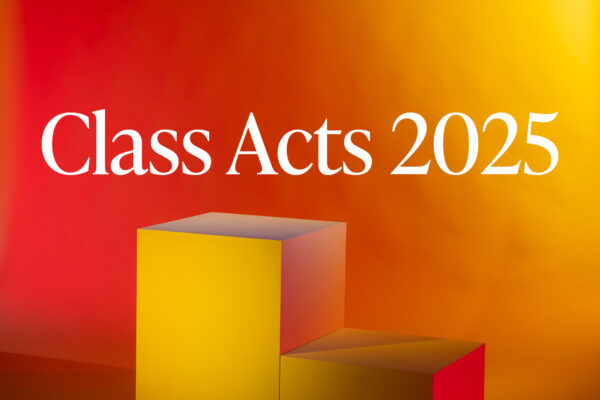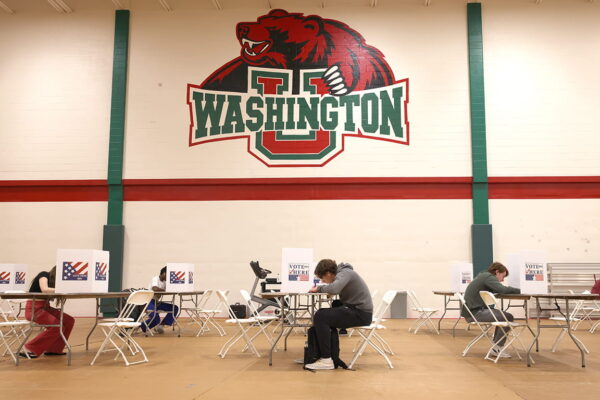Amelia Letson has long been passionate about civic engagement and political advocacy. Growing up in Miami, she became accustomed to political polarization and learned the importance of making her voice heard. A Civic Scholar at the Gephardt Institute for Civic and Community Engagement, and a former St. Louis Fellow, WashU Votes co-chair, and U.S. Congress legislative fellow, Letson has spent the past four years promoting voter education, researching progressive policy and increasing civic engagement on campus.
“College is such a crucial part in our lives, in forming habits, shaping how we view politics and influencing how we get involved in things,” Letson said. “When I go up to a student and say, ‘Are you registered to vote?’ that might be their first interaction with civic engagement practices. If we make people care about these things now, hopefully they’ll carry that and be engaged citizens for many years to come.”

Letson is also an advocate for reproductive justice. Synthesizing her academic background in political science and in women, gender and sexuality studies in Arts & Sciences, she has served as co-president of WashU’s Planned Parenthood Generation Action chapter and currently works as a legislative assistant for Abortion Action Missouri, a local grassroots organization.
Here, Letson reflects on her civic involvement on campus, leadership style and plans for the future.
From dorm-to-dorm canvassing to presenting at civic engagement conferences, what have been your proudest moments in WashU Votes?
WashU has consistently been recognized as an engaged campus, and I’m really proud of that. Also, Missouri changed its voter identification law in 2022, meaning students could not use their WashU ID to vote. We had to think about how to reach people with that information and to make sure they knew they absolutely had the right to vote in Missouri. I was proud that our voter turnout was still higher than the national college average, and I think it made students think more about barriers to voting and why these identification laws exist.
You’ve worked in student groups, nonprofit organizations and even the federal government. How has your vision of leadership evolved through these experiences?
When I came to college, I thought being a leader meant directing others at all times. I think that now, it is more about forging an environment that empowers people to come up with ideas and actually pursue them. Working off-campus, too, with people of all ages, backgrounds and forms of expertise, has made me more open-minded. I’ve been in so many spaces where I am the youngest person, and it feels amazing when people trust me and want to hear my perspective. I try to emulate that, making sure I listen to everyone and give them an opportunity to speak from day one.
Where do you see your work going in the future?
I’m committed to advocating for progressive policies and for people in ‘red’ states. Places like Missouri and Florida are easy to count out — you look at the policies and think they are representative of what everybody wants. But that doesn’t really paint the full picture. Missouri is a state that has consistently voted for conservative political figures, but it also voted to enshrine reproductive rights into the state constitution. To me, this is indicative of a larger issue: Why are our policies not representing our people, and why are we constantly blaming people for the representatives that are elected? I want to find ways to make policies more representative and to help support people and places.


